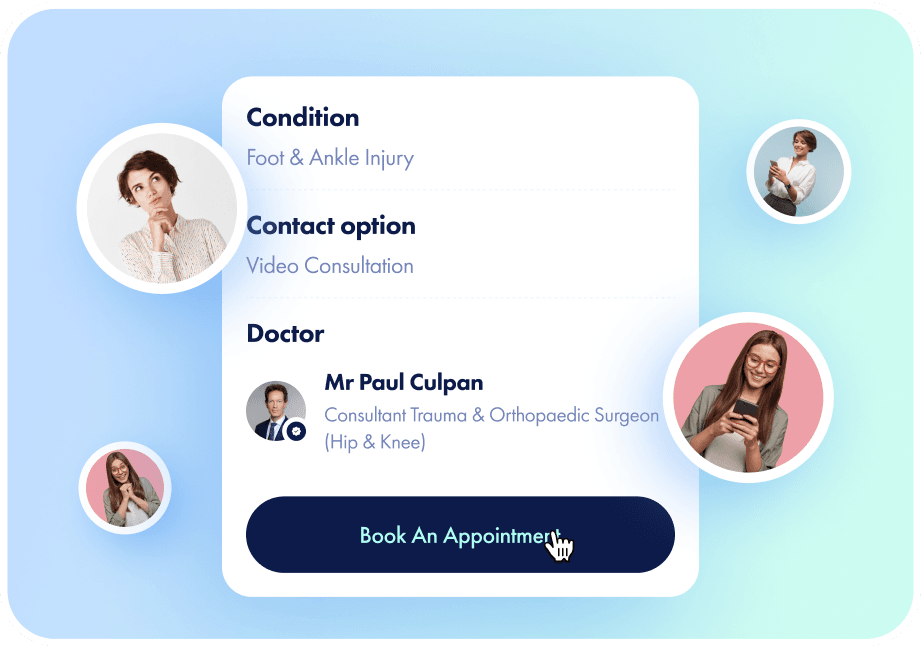
Conveniently reserve your spot with just a few clicks through our easy-to-use online booking system.


Autism Spectrum Disorder (ASD) is a complex developmental condition that affects how people process information, interact with others, and experience the world. While there is no cure for ASD, early intervention and ongoing support can significantly improve an individual's quality of life. Here at LIPS, our team of specialists is dedicated to providing comprehensive care that addresses the unique needs of each person on the autism spectrum.
You are not required to provide a referral letter from your doctor or GP.
Start a visit quickly and discreetly whenever works best for you.
Our doctors review symptoms, prescribe treatments if needed.
Proceed with your healthcare journey as you wish. You're in control.
You control medical records, access anytime.
The primary cause of ASD is still unknown. However, research indicates a combination of genetic and environmental factors can influence the development of ASD.
Genetic risk factors include the following:
A family history of ASD may increase the likelihood of other members having ASD.
Boys are more likely to be diagnosed with ASD than girls. There may be a genetic predisposition.
Certain genetic conditions—such as Rett syndrome, Fragile X syndrome, and others—are associated with an increased risk of ASD.
Environmental risk factors include the following:
Children born to older parents are at a higher risk of ASD.
Factors like premature birth, low birth weight, or complications during pregnancy may be associated with a higher risk of ASD.
Harmful substance exposure, such as certain drugs or toxins during pregnancy, can increase the risk of developmental disorders, including ASD.
Сontact us to schedule an appointment or learn more
Conveniently reserve your spot with just a few clicks through our easy-to-use online booking system.
Have a question or request? Drop us a message, and our team will get back to you promptly.
Feel free to give us a call, and our friendly staff will be glad to assist you over the phone.
Here are some common symptoms of ASD. Many are observable in children yet often persist into adulthood.
Trouble Maintaining Eye Contact: Even from birth, children with ASD might find it difficult to hold eye contact, signalling early communication challenges.
Delayed Response: By 9 months, some children may not respond to their names or are slow to react to social cues.
Limited Emotional Expression: Emotional expression through facial gestures or verbal communication can be limited or delayed.
Challenges in Social Games: Basic interactive games that involve back-and-forth communication might be less engaging for them.
Limited Gestures: Using hand gestures for communication may be reduced.
Expressing Emotions: Autistic children might face challenges expressing their feelings or understanding the emotions of others.
Uneven Language Development: Language skills can develop at an uneven pace, leading to strengths in specific areas and challenges in others.
Hyperlexia: An early ability to read but with challenges in comprehension
Repetitive Movements: Behaviours like rocking, spinning, or running back and forth are common.
Routine Attachment: A strict adherence to routines, with distress over minor changes
Object Focus: An intense focus on parts of objects or an obsessive interest in specific topics
Individuals with ASD often experience either heightened or reduced sensitivities to sensory inputs. This can include reactions to sounds, lights, textures, or tastes that can be overwhelming or underwhelming.
Anxiety: A common companion, making social interactions and new environments challenging
Sleep Disorders: Trouble falling or staying asleep, impacting overall health and well-being
Stress: Excessive worry, stress, or unusual levels of fear, which might be either heightened or lower than expected
People with autism might also exhibit additional nuanced behaviours and symptoms that are unique to each person. Examples include:
Movement, Language, or Cognitive Skills: Some may experience delayed development in these areas, requiring additional support to enhance growth.
Seizures: Some autistic individuals experience seizures.
Gastrointestinal Symptoms: Issues like constipation or diarrhoea can be more common.
Unusual Emotional Reactions: Responses to stimuli or situations might differ from expectations.
Diet Preferences: Specific or restricted eating habits or preferences can be a characteristic.
Hyperactivity or Impulsivity: These behaviours can be prominent, requiring tailored management approaches
Stimming—or self-stimulating behaviours—is a common aspect of ASD, characterised by repetitive motions or speech. These behaviours offer a mechanism for managing sensory experiences and emotions.
Examples of stimming include:
Physical Motions: Rocking, hand-flapping, or specific sounds are common forms of stimming, providing sensory input, focus, or relief.
Visual Stimming: Fixating on lights, spinning objects, or other visual stimuli to regulate sensory input.
While stimming is often associated with ASD, it’s a natural behaviour observed in many people. For those with autism, it can be a coping mechanism, aiding in the management of sensory overload, anxiety, or uncomfortable situations. Understanding and respecting this behaviour is crucial to support the well-being of individuals with ASD.
From Home or Face to Face, all at your convenience
Schedule a Video Consultation or a Face-to-Face appointment at your convenience by using our online booking system.
Schedule a Video Consultation or a Face-to-Face appointment at your convenience by using our online booking system.
Your dedicated Specialist Doctor will provide you with personalized treatment, tailoring it to your specific needs, and may include necessary medication.
Our facilities are regularly inspected to ensure compliance with the highest industry standards.
Quick access to parking and
public transport
Helpful, accommodating staff
Comfortable and
calming environment

















